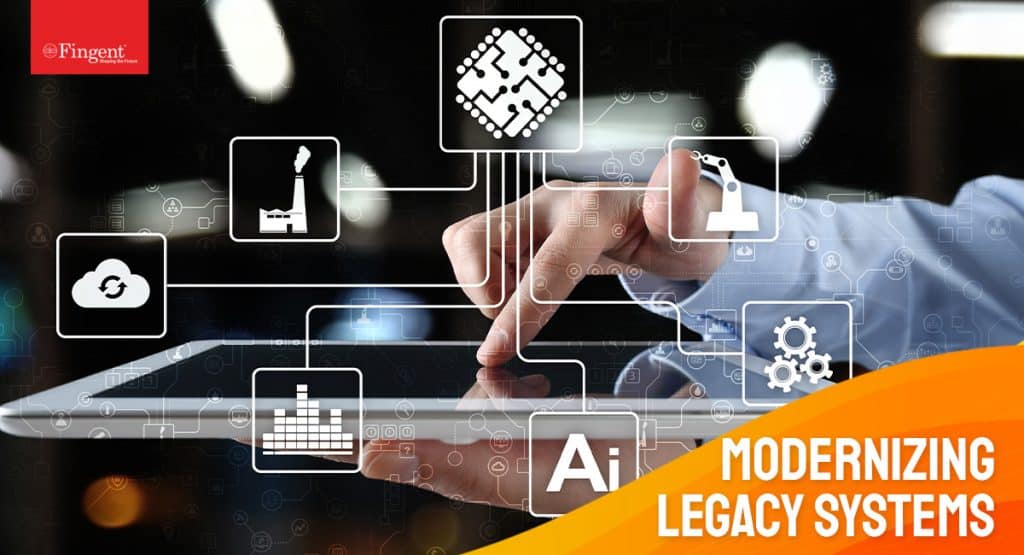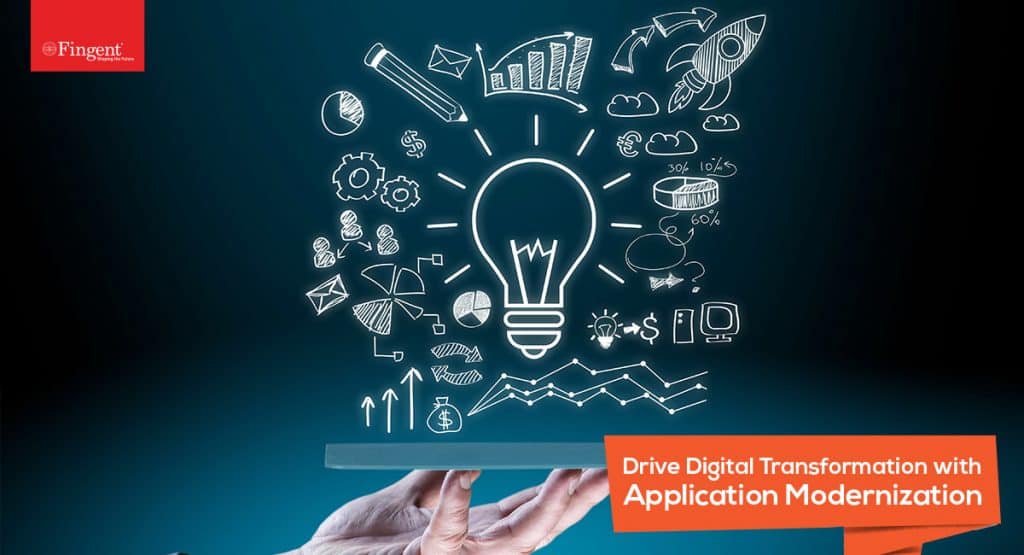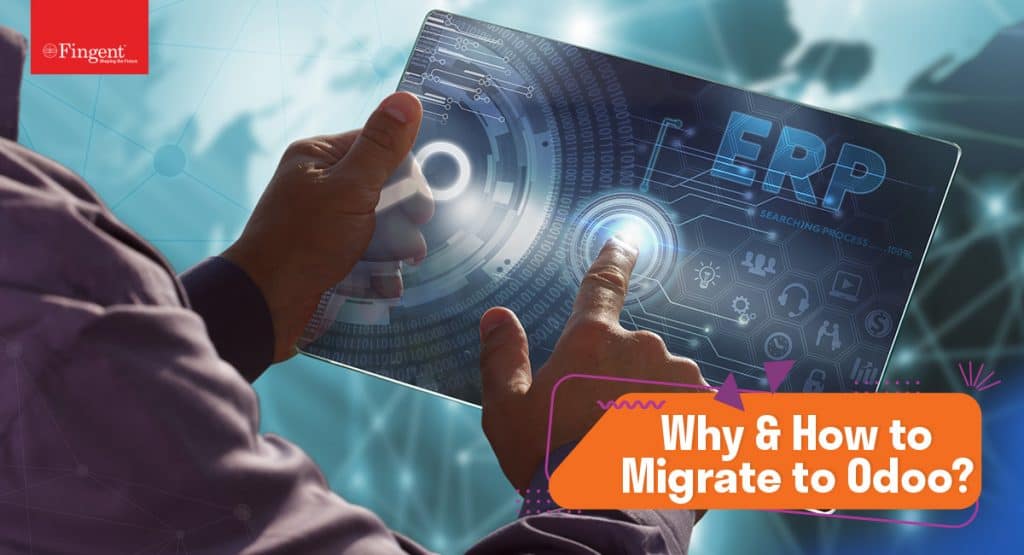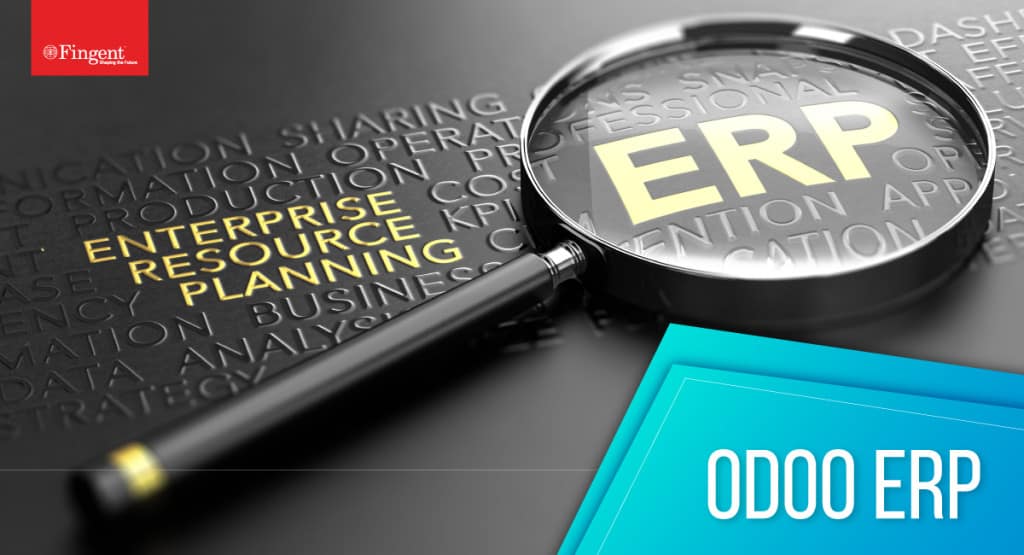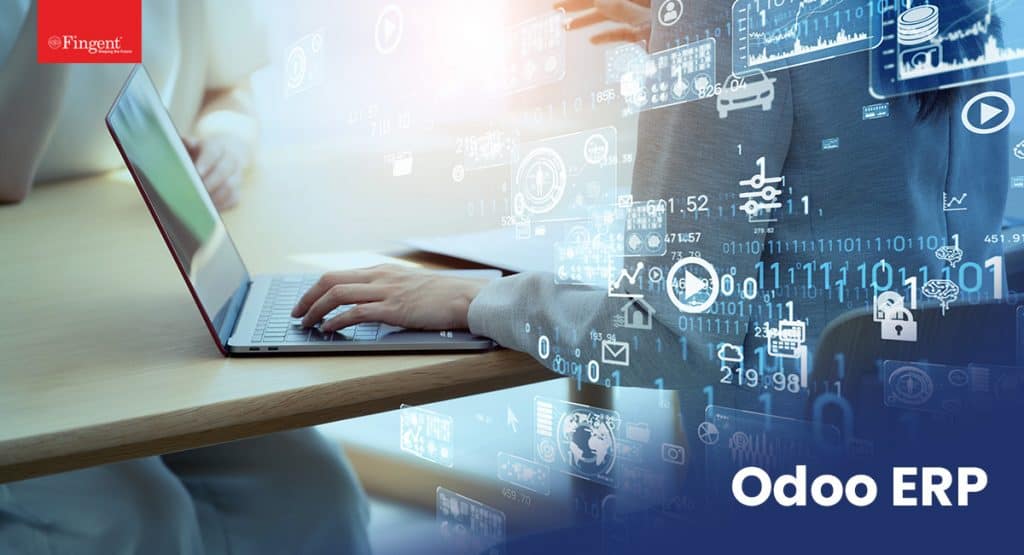4 Ways Legacy Application Migration to Odoo ERP Benefits Your Business
Why migrate your legacy ERP software to Odoo ERP?
COVID-19 pandemic and the subsequent economic disruption have made many businesses consider the benefits of legacy application migration. Migrating legacy enterprise applications or systems to new technology platforms is one of the cheapest and fastest methods to ensure business continuity in today’s volatile market.
Read more: Why modernize your legacy systems? What’s the best approach to legacy systems modernization?
Technavio estimates that the global ERP software market will grow by $18.91 billion from 2019-2023, with a CAGR of 9%. This report only highlights the growing demand for ERP software across various businesses.
Odoo ERP implementation is an all-in-one solution befitting your particular business requirements. Odoo ERP system is flexible and easy to deploy. It can replace your outdated legacy system and augment the overall business process. For example, Toyota uses Odoo ERP to streamline material handling processes. Even for a complex project, the shortest implementation span has helped Toyota create additional value in just six months of Odoo integration.
Reasons leading to an increase in demand include the need for digital transformation and to keep up with the ‘new normal’ thanks to the rise of eCommerce, mobile shopping, and providing a seamless experience to customers. In addition, the changing business scenarios are compelling businesses to adapt to new technology and platforms for facing the challenges and making the migration from one environment to another inevitable.
This has necessitated migration to the latest platforms such as legacy ERP systems to the new, web-based, Cloud, or On-premise Odoo ERP or from old Odoo ERP to the latest version.
Read more: Top 6 reasons to migrate to a cloud-hosted ERP
Legacy System vs. Odoo ERP
Currently, many organizations are operating under the legacy system, and some even continue to stay within that comfort zone. However, decision-makers will have to look into new technology and methods, as legacy systems need better functionality to facilitate daily business operations and accommodate the growing customer base.
Migrating to Odoo ERP system is the best way to adapt and meet the ever-evolving market demand. In addition, Odoo ERP migration reduces manual labor and improves business productivity to a great level. It is less time-consuming and cost-effective than going for a total replacement of your legacy enterprise application.
Why is legacy application migration needed?
1. Eliminate maintenance and security risks
A legacy system is inefficient and outdated and can cost you more than a total replacement, especially if the system is older. It can result in IT businesses spending more on its maintenance, leaving little of the budget to address business challenges that are getting complicated day by day.
That said, old and outdated software systems are more prone to cyber-attacks and security risks. Also, when such an obsolete system is near its end of the life cycle, support will be stopped leaving organizations operating on those legacy systems vulnerable.
In many cases, companies may lose data and information when legacy systems fail. Also, it could be tough to find people who know those obsolete programming languages to repair the system. Outsourcing the maintenance work may also become more expensive than usual as the professionals may not be well-versed with such a system. This is where a legacy application migration expert like Fingent can help. We help migrate your legacy on-premise systems to advanced, cloud-hosted infrastructure so that your business can scale as it grows.
Read more: 5 ways application modernization enables your business to reap ROI during a pandemic
2. Gain improved access to relevant data
Most of the legacy systems were built during times when customers would still shop from traditional brick-and-mortar stores. Also, these systems would not store business data from each department in a central place.
So, organizations looking to continue operating on outdated applications or systems will naturally miss out on better opportunities and scaling up. It will limit their business mobility and flexibility as well. Additionally, legacy systems lead to data duplication. The data itself could be inaccurate, outdated, and incomplete. These inefficiencies will hamper your business growth and even slow down the competitive edge.
On the other hand, web-based cloud ERP systems like Odoo allows businesses to access their data from anywhere and anytime from various operating systems and mobile devices.
Simply put, Odoo migration provides organizations with more innovative ways of operating a business while offering technological developments allowing them to maximize value creation across assets and operations lifecycles, eventually improving ROI.
Read more: Odoo Migration: Why is it crucial and how to do it seamlessly
Benefits of legacy application migration to Odoo
Odoo migration allows you to move your legacy applications from their existing tech stack to the latest software platform. Legacy application migration to Odoo ERP is one of the best ways to augment software performance by leveraging the latest technologies. Here’s what legacy system migration to Odoo offers you:
1. Improved operational efficiency
Odoo offers both Cloud and On-premise ERP solutions that enable organizations to address the needs of their customers. Cloud-based ERP is more popular as it offers improved flexibility, accessibility, security, and better operational efficiency. The cloud-based application is also accessible across different devices such as laptops, smartphones, desktops, and tablets. However, you will need a reliable internet connection and a compatible device to access the application anytime and anywhere. Migrating to Odoo will also reduce hardware dependency and is easily accessible.
2. Cost-efficiency
Odoo migration is cost-effective and gives you better control of your operational expenses. You can utilize Odoo’s dedicated financial management, invoicing, and accounting modules and customize them according to your business needs. More importantly, Odoo migration reduces infrastructure complexities and maintenance costs. Also, its flexible nature allows you to pay for the features you are using.
3. Robust data security
As legacy systems include obsolete software configurations and outdated technologies, they are more vulnerable to cyber-attacks. Odoo offers exceptional features such as 256-bit SSL encryption, PBKDF2+SHA512 encryption, RPO/RTO-based backup, and disaster recovery techniques in addition to top-notch network defense against DDoS attacks, SQL injections, and malware attacks.
4. Overcome compatibility issues
Many organizations are likely to face compatibility issues while upgrading their legacy applications due to old software configurations. In addition, given the underlying software architecture, the legacy system also makes integrating new technologies very challenging.
So, legacy application migration seems to be the only option to overcome the apparent limitations and vulnerabilities. As the entire tech is upgraded while moving data to the Odoo ERP software platform, it becomes fully compatible with several applications, enterprise modules, and software technologies. You can also benefit from the multiple, feature-rich modules offered by Odoo ERP to manage various business functions.
Read more: Why your business needs Odoo ERP
In addition to the above benefits, Odoo ERP enables search integration, social networking, and other latest technology functions. Moreover, migrated systems are less likely to become outdated as they can be continuously updated to on-trend technology.
Migrate your legacy ERP to Odoo with Fingent
Odoo ERP caters to the business needs of enterprises of all sizes, and legacy application migration to Odoo will provide you with a string of benefits. These benefits will future-proof your organization regardless of its diverse functionality.
Read more: Why choose Fingent as your Odoo ERP partner
We, at Fingent, provide end-to-end Odoo ERP solutions for industry-specific business needs. We specialize in building custom enterprise applications for varying business needs and render complete support for Odoo ERP integration and legacy application migration to Odoo ERP. To know more about our Odoo ERP migration services, contact us right away.
Stay up to date on what's new

Recommended Posts
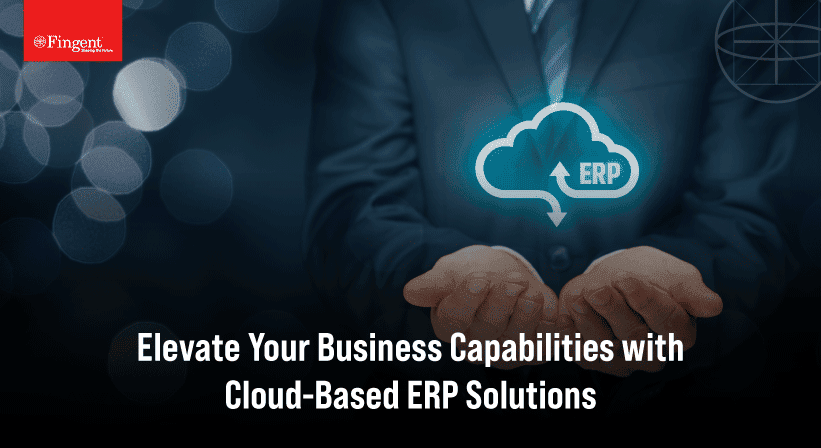
15 Sep 2023 B2B
Cloud-Based ERP Solutions Elevating Business Potential
A strong technological backbone – that is what is required of businesses today. From simple record-keeping tasks to complex future planning tasks, advanced technology can support a business and allow……
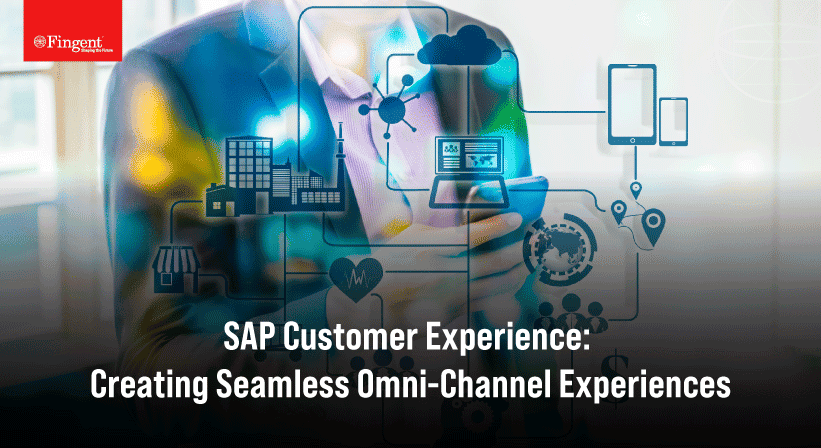
30 Jul 2023 B2B
SAP Customer Experience: Creating Seamless Omni-Channel Experiences
Businesses find themselves at a critical juncture as customer expectations soar and their loyalty hangs by a thread. The key to captivating and retaining customers lies in mastering the art……
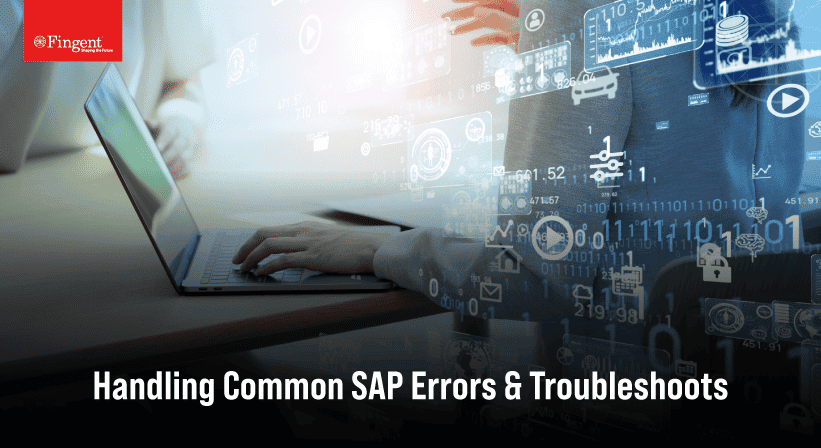
06 Jun 2023 B2B
A Simple Guide To Handling Common SAP Errors & Troubleshoots!
Today, technology unlocks the value of time, allowing us to easily juggle multiple tasks and accomplish much more in less time. For some time now, SAP has become the backbone……
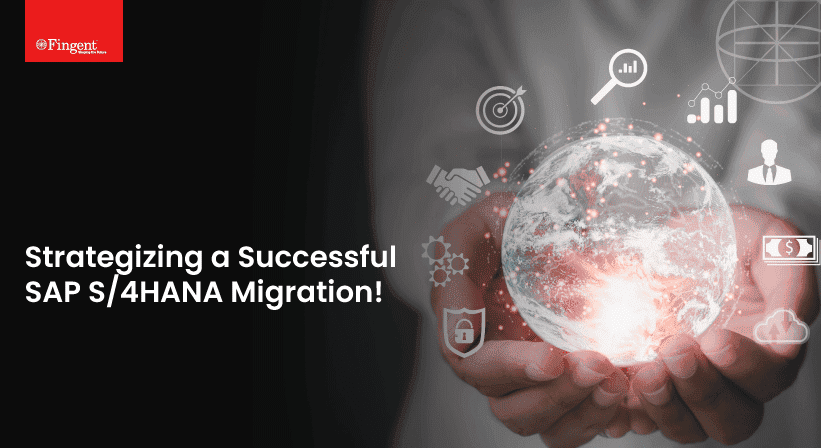
15 Apr 2023 B2B
Strategizing A Successful SAP S/4HANA Migration for Your Business!
“You on the cutting edge of technology have already made yesterday's impossibilities the commonplace realities of today.” - Ronald Reagan True to these words, the development and improvement of technology……
Featured Blogs
Stay up to date on
what's new



